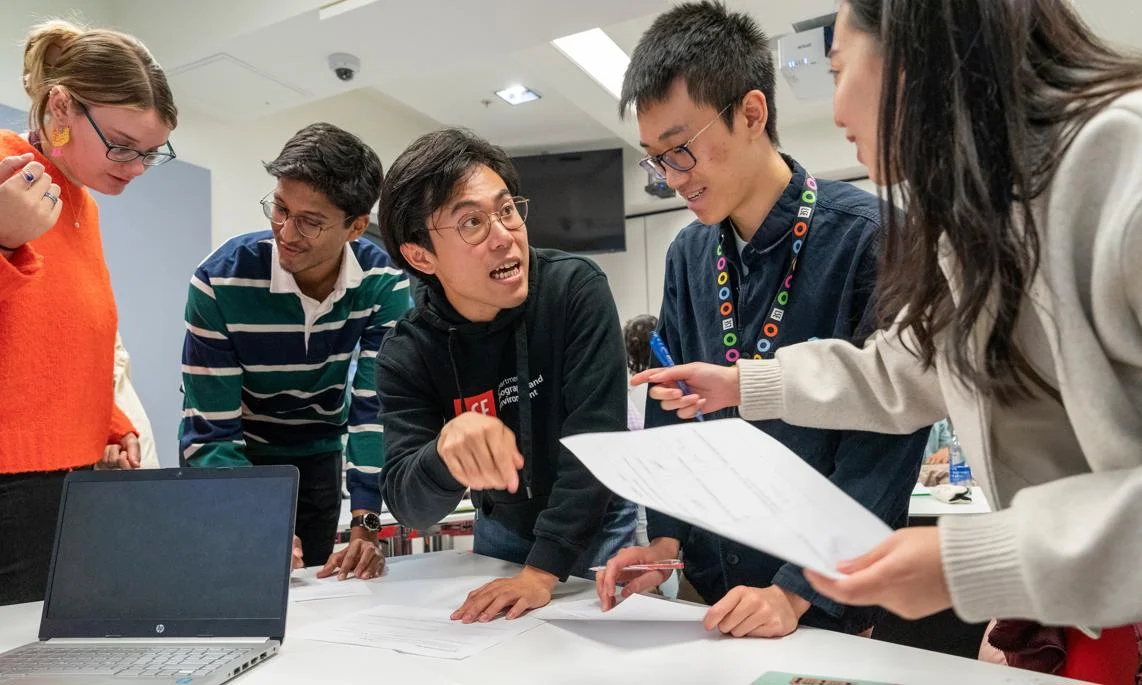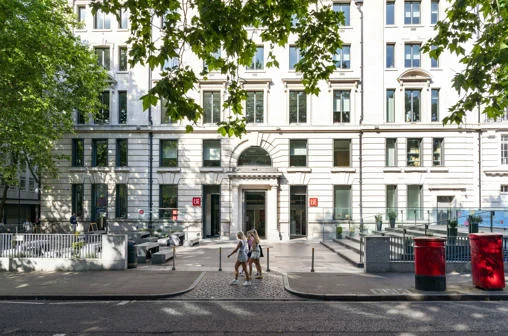Overview
Introduction
This programme provides an understanding of the key themes of contemporary geographical thought and allows you to develop an appreciation of the methodological implications of such theoretical developments.
Human geography and urban studies are dynamic and pertinent areas of the social sciences, drawing together concerns with space, economy, society and the environment. In addition to understanding key geographical themes and methodology insight, you'll be able to develop a substantive field of research interest.
This programme will be of interest if you've studied geography or a related social science subject at undergraduate level and are now looking for a more focused introduction to human geographical research. It's designed as preparation for study at PhD level, as well as further training in a broad range of substantive geographical and environmental themes. It draws on the breadth of theoretical understanding, research expertise and practical experience in the department as well as the strength of LSE’s offering across the social sciences, allowing for learning in specialised courses elsewhere in the School.
Preliminary readings
- T Cresswell Geographic Thought: a critical introduction (Wiley-Blackwell 2013)
- M Gandy The Fabric of Space: water, modernity and the urban imagination (MIT Press, 2014)
- D Harvey The Enigma of Capital and the Crises of Capitalism (Profile Books, 2010)
- P Joyce The Rule of Freedom: liberalism and the modern city (Verso, 2003)
- H Lefebvre Writings on Cities (Blackwell 1996)
- J Robinson Ordinary Cities: between modernity and development (Routledge, 2005)
- M Storper Keys to the City (Princeton University Press, 2013)
- N Thrift Non-Representational Theory (Routledge, 2008)
- F Tonkiss Cities by Design: the social life of urban form (Polity Press, 2013)
Entry requirements
Upper second class honours degree (2:1) or equivalent in geography or social science.
Please select your country from the dropdown list below to find out the entry requirements that apply to you.
Overseas
English language requirements
The English language requirement for this programme is Standard. Read more about our English language requirements.
Competition for places at LSE is strong. So, even if you meet the minimum entry requirements, this doesn't guarantee you an offer of a place.
However, please don’t feel deterred from applying – we want to hear from all suitably qualified students. Think carefully about how you can put together the strongest possible application to help you stand out.
Programme content
Year 1
You'll take courses to the value of four full units in total, made up of compulsory and optional courses, including one advanced research methods course.
Courses to the value of two and a half units from a range of options
Why study with us
Discover more about our students and department.
Meet the department
Our department is highly regarded both nationally and internationally – ranked second for Geography in the QS World University Rankings 2025.
Here at LSE, we offer a unique opportunity to study geography in a university with a worldwide reputation in the social sciences. We specialise in economic, urban and development geography, environmental social science and climate change, all with a strong emphasis on real-world applications.
Many of our academics are internationally renowned in their fields. You’ll find a good balance of experienced and younger academics in the department. Within the team, we’ve had three holders of the highly prestigious Philip Leverhulme Prize Fellowships for researchers under the age of 36.
Our research is interdisciplinary and international in its scope and we work closely with academics from several other departments at LSE. Teaching staff are active within the following research centres:
- Cañada Blanch Centre for Contemporary Spanish Studies
- Centre for Climate Change Economics and Policy
- Centre for Economic Performance
- Grantham Research Institute on Climate Change and the Environment
- LSE London
- Middle East Centre
- Saw Swee Hock Southeast Asia Centre
- Transition Pathway Initiative Centre
- What Works Centre for Local Economic Growth
Based in the heart of London opposite Lincoln’s Inn Fields, the department offers a lively, welcoming and supportive community for students and staff.
Learn more about our undergraduate, postgraduate and PhD study opportunities, as well as our research.
Why LSE
University of the Year 2025 and 1st in the UK in 2025 and 2026
Times and The Sunday Times - Good University Guide 2025 and 20261st in London for the 14th year running
The Complete University Guide - University League Tables 20266th in the world for the study of social sciences and management
QS World University Rankings by Subject 20256th in the world for leading the way in social and environmental sustainability
QS World University Rankings: Sustainability 2026Your application
Overview
We welcome applications from all suitably qualified prospective students. At LSE, we want to recruit students with the best academic merit, potential and motivation, irrespective of background.
We carefully consider each application and take into account all the information included on your application form, such as your:
- academic achievement (including predicted and achieved grades)
- statement of academic purpose
- two academic references
- CV.
See further information on supporting documents.
You may need to provide evidence of your English language proficiency. See our English language requirements.
This programme is available as part of an ESRC-funded pathway onto a PhD programme. The 1+3 scheme provides funding for a one year research training master's linked to a PhD programme and is designed for students who haven't already completed an ESRC recognised programme of research training. An application must be submitted for the relevant master’s programme, including a research proposal for the PhD aspect of the pathway. Applicants must also indicate their wish to be considered for the 1+3 pathway within their personal statement.
When to apply
Applications for this programme are considered on a rolling basis. This means that applications will close once the programme is full.
There is no fixed deadline. However, if you’d like to be considered for any funding opportunities, you must submit your application (and all supporting documents) by the funding deadline. See the fees and funding section below for more details.
Fees and funding
The table of fees shows the latest tuition fees for all programmes.
You're charged a fee for your programme. At LSE, your tuition fee covers registration and examination fees payable to the School, lectures, classes and individual supervision, lectures given at other colleges under intercollegiate arrangements and, under current arrangements, membership of the Students' Union. It doesn't cover living costs or travel or fieldwork.
Home
Home student fee (2026/27)
For this programme, the tuition fee is different for home and overseas students depending on their fee status.
Overseas
Overseas student fee (2026/27)
For this programme, the tuition fee is different for home and overseas students depending on their fee status.
Learning and assessment
How you learn
How you're assessed
All taught courses are required to include formative coursework which is unassessed. It's designed to help prepare you for summative assessment which counts towards the course mark and to the degree award. LSE uses a range of formative assessment, such as essays, problem sets, case studies, reports, quizzes, mock exams and many others. Summative assessment may be conducted during the course or by final examination at the end of the course. An indication of the formative coursework and summative assessment for each course can be found in the relevant course guide.
Graduate destinations
Overview
Many graduates from this programme go on to do PhD degrees, while others enter a wide variety of employment including consultancy, the public sector and education.
Further information on graduate destinations for this programme
Median salary of our graduate taught students 15 months after graduating:
Top 5 sectors our students work in:
Career support
From CV workshops through to careers fairs, LSE offers lots of information and support to help you make that all-important step from education into work.
Many of the UK’s top employers give careers presentations at the School during the year and there are numerous workshops covering topics such as job hunting, managing interviews, writing a cover letter and using LinkedIn.
See LSE Careers for further details.

